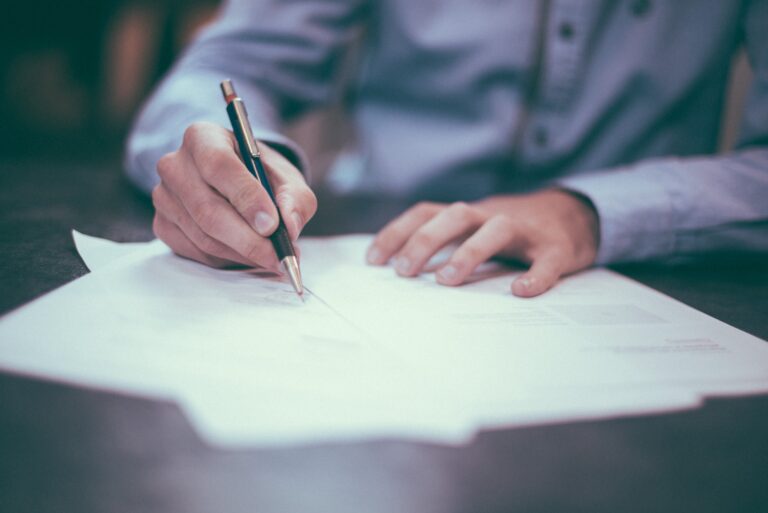Renting out a house recently may have you worried about your tax obligations. We recognise taxes can be confusing, especially for new landlords.
This guide covers everything from registering to filing a Self Assessment tax return.
And now…
SELF-EVALUATION REGISTRY
If your rental income exceeds £1,000, you must file a Self Assessment tax return. This tells HMRC how much to tax you based on your income and expenses (more on that later).
You must register for Self Assessment by the 5th of October of your second tax year as a landlord (if you started letting property between 6th April 2020 and 5th You have until the 5th of October 2022, for example, if you start in April 2021.The first step is to create an online account or log in to the Government Gateway. Registration for Self Assessment can be done either online or by mailing the SA1 form after your system is set up.
After registering, you'll get a letter with your UTR number within 10 working days. If you work abroad, allow up to 21 working days. Keep this number handy in case you need to send a tax return.
SUBMISSION DEADLINES AND PENALTIES
There are various deadlines to remember while filing your Self Assessment tax return.
The deadline for submitting a paper tax return to HMRC is October 31st. If you want to file online, you have until midnight on January 31st of the following year to file. This is also the deadline for your first payment on account (advance payment towards your bill for the next tax year).
A second payment on account deadline is usually on July 31st. More info here.
A late submission or payment of your tax bill frequently results in a penalty. Penalties are explained here.
BE AWARE OF EXPENSES
As with every self-employed person, there is a list of business expenditures that a landlord can deduct. They are:
1.Property repair and upkeep expenditures.
2.Council tax, water charges, and energy bills.
3.Taxes and management fees.
4.Service fees.
5.Insurance.
6.Replacing household things.
Renting out a house recently may have you worried about your tax obligations. We recognise taxes can be confusing, especially for new landlords.
The Best Accountant in London is here to help. This guide covers everything from registering to filing a Self Assessment tax return.
And now…
SELF ASSESSMENT TAX RETURN
The Self-Assessment is useful since you only have to complete the portions that apply to you. So, make sure you don't make any mistakes on the forms.
If you're confused which parts apply to you, GoSimpleTax's useful software can help. It saves you hours of time that you could be spending on your rental business.
The SA105 is the supplementary page for UK property income. Before the deadlines shown below, this must be completed and filed with your SA100 (primary Self Assessment tax return). Here are some tips from HMRC on how to fill up your tax return.
You may also need to complete additional forms if you get other types of income, such as employment (SA102), foreign (SA106), or capital gains (SA106) (SA108). Non-UK residents must additionally complete the residency page (SA109).
Our programme can also file your SA tax return. Another option is to complete the SA100 tax return form online, print it out, and mail it to HMRC.
SUBMISSION DEADLINES AND PENALTIES
There are various deadlines to remember while filing your Self Assessment tax return.
The deadline for submitting a paper tax return to HMRC is October 31st. If you want to file online, you have until midnight on January 31st of the following year to file. This is also the deadline for your first payment on account (advance payment towards your bill for the next tax year).
A second payment on account deadline is usually on July 31st. More info here.
A late submission or payment of your tax bill frequently results in a penalty. Penalties are explained here.
BE AWARE OF EXPENSES
As with every self-employed person, there is a list of business expenditures that a landlord can deduct. They are:
Property repair and upkeep expenditures
Council tax, water charges, and energy bills
Taxes and management fees
Service fees
Insurance
Replacing household things
Interest and additional mortgage fees
You may be allowed to deduct these expenses (as long as they were primarily for the property) from your rental revenue to reduce your tax liability.
RECORD-KEEPING
To calculate your taxable earnings, you'll need to keep track of your expenses and rent from tenants. While you do not need to provide the records with your tax return, HMRC may request them if an investigation is opened.
Among the records you must keep are:
- Receipts sInvoices
- Bank records
- Books to
- KM logs
It's important to retain these records for at least five years after the 31st January of the tax year. Inaccurate records can result in a fine from HMRC.
.Interest and additional mortgage fees.
You may be allowed to deduct these expenses (as long as they were primarily for the property) from your rental revenue to reduce your tax liability.








